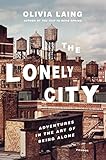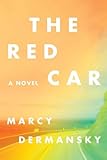For those of us who read incessantly — books often serving as a kind of muzzy hideyhole from the world, our lives — our reading memories of 2016 may be forever tied to the presidential campaign. Pre-nomination, post-conventions, pre-Access Hollywood, post-James Comey, pre-November 8th, and The After. So it is for me and the three books I want to talk about, each one tentacled to the election, but far more for the intensity of feeling the election induced:


 In the middle of May (Ted Cruz withdraws, Donald Trump secures the needed number of delegates), which feels like a lifetime ago, I read The Red Car by Marcy Dermansky a humming wonder of a novel about Leah, a writer, stifled in her current life and marriage, who travels to San Francisco when a coworker from a decade ago suddenly dies.
In the middle of May (Ted Cruz withdraws, Donald Trump secures the needed number of delegates), which feels like a lifetime ago, I read The Red Car by Marcy Dermansky a humming wonder of a novel about Leah, a writer, stifled in her current life and marriage, who travels to San Francisco when a coworker from a decade ago suddenly dies.
In late October, a tense and hopeful time, the ground shifting every day beneath one’s feet, I sunk into The Lonely City: Adventures in the Art of Being Alone by Olivia Laing. A luminous non-fiction meditation on loneliness and its “potential beauty,” Laing considers the way it “drive[s] creativity of all kinds,” as explored through the lives of artists including Edward Hopper, Henry Darger, and David Wojnarowicz.
The dire week after the election, when every day seems to wrench and pull at so many of us, I read without stopping an advance copy of All Grown Up by Jami Attenberg (out in March 2017), a funny, startling, melancholy stunner of a novel about Andrea, an artist no longer doing her art, a sister and daughter and friend and colleague and New Yorker trying to find her way and figure out what it means to be an adult.
These are books of aloneness — women alone, artists alone, women artists alone, doing or not doing art. And they are books of connecting — painfully, tentatively, transcendently, warily, fleetingly, bravely. Reading them as the nation seemed to jolt and bob and weave and hurtle, I felt my nerve endings exposed, every feeling a soft suffusion in the chest.
“What does it feel like to be lonely?” Laing asks in The Lonely City. “It feels like being hungry: like being hungry when everyone around you is readying for a feast.” Leah and Andrea, Dermansky and Attenberg’s heroines, are both hungry, and their hunger is rendered painful, consuming, transformational. It enables them to see the hunger in loved ones, strangers, celebrities, servicepeople, everyone — even, or especially, when it’s hurtful to do so.
“What is it about the pain of others?” Laing asks. “Easier to pretend that it doesn’t exist. Easier to refuse to make the effort of empathy, to believe instead that the stranger’s body on the sidewalk is simply a render ghost, an accumulation of colored pixels, which winks out of existence when we turn our head, changing the channel of our gaze.”
Reading these words before November 8th and after is the same, yet different. All three books remind us how painful it is to feel so much and how critical it is, maybe now more than ever, to feel so much. How challenging it can be to connect to others — especially when we feel pushed out or when we are the ones doing the pushing — and how important it is to keep on trying, through art or friendship or activism or simple empathy. These are all books that reach their hand out and say: This is hard, all of it, but we have to. We have to.
More from A Year in Reading 2016
Don’t miss: A Year in Reading 2015, 2014, 2013, 2012, 2011, 2010, 2009, 2008, 2007, 2006, 2005









